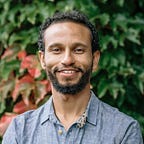The Borderless Economy is Made for Africa
Decentralized technologies and the crypto revolution are changing the game for African youth.
This write-up is based on a recent Twitter thread.
I recently spoke to a young Ethiopian who:
- Taught himself to code online and at a local university in Ethiopia
- Learned to code with Solidity online at Coursera (he asked for a full scholarship and they gave it to him)
- Joined online communities to practice and apply his new skills
- Hustled on LinkedIn sending cold-messages to crypto companies and he landed a full-time fully digital job to build blockchain apps.
Today, over 70% of Ethiopians are under the age of 30 (~81 million people). That number is 900 million people for the whole African continent. Many are digital natives. They are smart, very resourceful, and they can certainly hustle.
65% of Africans are also expected to have a smartphone by 2025, with higher adoption amongst younger Africans.
The problem is: their potential is capped by the physical economic infrastructures available to them.
The education and work opportunities right in front of them are limited and have a low ceiling. For the vast majority their ability to travel is extremely limited. They need a credit card and access to foreign exchange to transact with the world. Traditional “remote work” requires them to be familiar with western working cultures and languages. This creates large unemployment and scarcity of opportunities, which can be a huge liability for African governments.
Enter a new borderless economy powered by decentralized technologies and the crypto revolution. This borderless economy allows any individual with internet access to fully participate in exchanging ideas, products and services with any other individual/group regardless where they are. It has fewer intermediaries that act as bottlenecks, and fewer limitations created by physical/political/cultural boundaries. Anyone from anywhere in the world can participate in it and co-create the new global economy.
In this emerging borderless economy, young people in African can now:
- Access the best education in the world with fewer barriers
- Work and earn globally, where their skills are valued in a more meritocratic way
- Transact transparently without needing permissions from intermediaries
- Collaborate faster and better with Africans to solve local and global challenges.
African youth can access this global economy at their fingertips, without needing to leave their continent. The ceiling that caps their potential is lifted. Eventually they become a big driving force of the global economy and get to shape it. African governments can then collect higher ‘export’ taxes to invest in local infrastructures.
Yes the crypto space is choppy. It doesn’t mute the issues society already faces. There are technical jargons. The technological infrastructures are still being built. There is a lot of speculative noise. Incumbents in the traditional economy are wary. On and on… It has the messiness that comes when people organize together to create something new.
Yet, I’m convinced this new borderless economy will change the landscape for Africa because I’ve spent 25 years building a borderless life inside the current economy. The arbitrary place where I was born has been a huge liability, and a barrier to participating in the global economy.
I learned most of my English online while living in Ethiopia and Tanzania, and landed a scholarship to Harvard. I moved to the West hoping to access better opportunities and remove the cap on my creative potential.
I built the Global Impact Visa immigration program with the New Zealand government so people can move around easily and be better global citizens.
The emerging borderless economy changes this equation. All you need is an internet connection and curiosity to participate and co-create with others.
